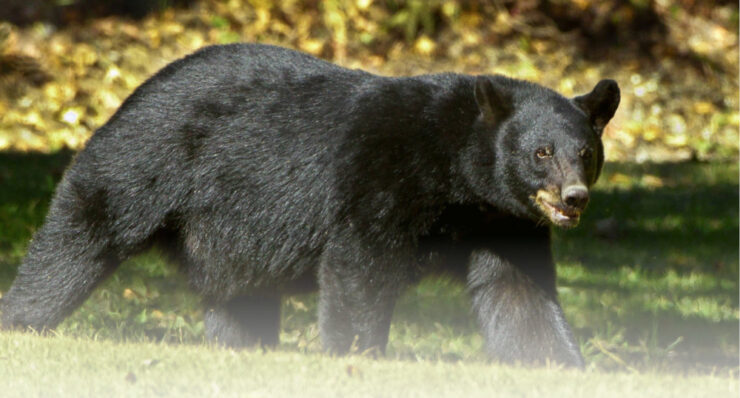DEM Provides Tips On Co-existing With Bears
The Department of Environmental Management (DEM) is reminding Rhode Islanders to remove potential food sources from their properties as black bears emerge with warmer weather. Bird feeders, unsecured trash cans, livestock feed, and other easily available household and backyard food sources attract bears primarily in early spring, during droughts, or in the fall when they are trying to put on weight for hibernation.
Black bears are generally shy and unaggressive and will avoid interactions with humans. Until their natural food sources become more available in the spring, however, black bears may be destructive when scavenging from trash cans and visiting bird feeders, beehives, chicken coops, rabbit hutches, and compost piles in search of food. Bears can easily become dependent on readily available backyard food sources and quickly become a nuisance. Black bears have an excellent sense of smell, will investigate odors they identify as an easy meal, and will regularly frequent a site once a food source is identified.
“A bear can’t be blamed for riffling through a trash can, but we can certainly change our own behaviors for the safety of both the community and wildlife,” said a DEM spokesperson. “By teaching bears that backyards are not their personal grocery stores and humans are not vending machines, handing out snacks, we can keep wildlife wild and our communities safe. Remember, bears are usually only following their noses to what they perceive as a food source, with no intention of interacting with people.”
DEM reminds the public to become “bear aware” by:
- Removing bird feeders by early April and waiting until early November to put them back up.
- Refraining from feeding pets outside, or if you do, taking pet food dishes inside at night.
- Storing birdseed, livestock feed, and garbage in buildings.
- Taking the garbage out for pickup on the morning of the collection – not the night before.
- Keeping barbecue grills clean of grease. Do not put meat or sweet food scraps in your compost pile.
- Using electric fencing around chicken coops, beehives, rabbit hutches, and livestock pens.
- Moving livestock into barns at night.
- Above all, DO NOT FEED BEARS. These are wild animals. An adult male typically weighs between 150 and 450 pounds, while females generally weigh between 100 and 250 pounds.
If a black bear is spotted on private property, people are advised to:
- Report the sighting to DEM’s Division of Law Enforcement at 401-222-3070. DEM is working closely with local police to track bear sightings and complaints and educate people on how to safely coexist with bears.
- Do not panic. Bears are rarely aggressive toward people and will often leave on their own. After the bear leaves the area, food sources or any other item of attraction should be removed from the yard.
- Do not run away if you surprise a bear. Walk away slowly while facing the bear. Make noise and let it know you are there by shouting something at it. In Rhode Island, black bears are protected animals. Intentionally feeding or shooting a bear is illegal.
The following steps will minimize the potential for bears to attack livestock or apiaries:
- Use electric fencing around pens or paddocks to protect sheep, goats and other small livestock.
- Move small livestock into barns at night.
- Secure grains and sweet feeds in buildings.
- Use electric fencing to protect apiaries and chicken coops.
- Banner image and content from RI DEM.
- For more information on living with Rhode Island bears, read DEM’s guide.
- For more information on DEM programs and services, visit https://dem.ri.gov/
